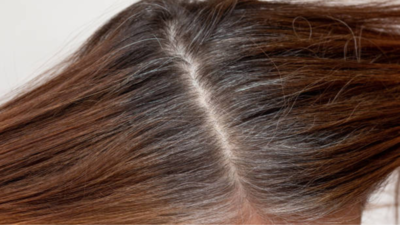Hair loss remains a critical issue with only a marginal rate of success. A team of researchers from Australia, Singapore, and China have found a powerful protector protein that protects the hair follicles.
The researchers have examined the role of MCL-1 protein
MCL-1 (Myeloid Cell Leukemia-1) is an anti-apoptotic protein belonging to the BCL-2 family. It plays a crucial role in cell survival by inhibiting programmed cell death (apoptosis). MCL-1 is highly expressed in various tissues, particularly in hematopoietic cells, and is essential for immune cell development, mitochondrial function, and cellular homeostasis. However, its overexpression is linked to cancer progression, including leukemia, lymphoma, and solid tumors, by promoting resistance to apoptosis. Due to its role in cancer survival, MCL-1 is a target for anti-cancer therapies, with inhibitors being explored for potential treatments in oncology.
How does MCL-1 protect hair follicles?
Hair follicles are small skin structures where hair grows, cycling through three phases: anagen (growth), catagen (transition), and telogen (resting and shedding). Hair follicle stem cells (HFSCs) drive this cycle but can undergo apoptosis due to stress from hair loss or follicle shrinkage, worsening hair loss. This process is regulated by BCL-2 family proteinswhich control cell survival and death.
“To investigate the role of MCL‑1, a BCL‑2 family protein with anti‑apoptotic and apoptosis‑unrelated functions, we delete Mcl‑1 within the skin epithelium using constitutive and inducible systems,” the researchers have said.
“Constitutive Mcl‑1 deletion does not impair hair follicle organogenesis but leads to gradual hair loss and elimination of hair follicle stem cells. Acute Mcl‑1 deletion rapidly depletes activated hair follicle stem cells and completely blocks depilation‑induced hair regeneration in adult mice, while quiescent hair follicle stem cells remain unaffected,” they added.
The findings of the study have been published in Nature Communications.
Hair loss is not merely a cosmetic issue—it can greatly affect an individual’s self-esteem, confidence, and overall health. For many, a full head of hair is synonymous with youth, health, and vigor, and therefore hair loss is a distressing experience. It can cause anxiety, social isolation, and even depression, especially when it starts at a young age or develops rapidly.
In addition to psychological consequences, hair loss can be indicative of underlying diseases. Hormonal imbalances, nutritional deficiencies, autoimmune diseases, or chronic stress tend to develop through hair shedding or thinning. In some instances, undue hair loss might be a precursor to severe medical conditions, thus necessitating timely diagnosis and intervention.
Though treatments such as medications, hair transplants, are available, they can be expensive, lengthy, or futile for many people. Dealing with hair loss involves taking an integrated approach with the diagnosis of underlying causes, enhancing the health of an individual, and ensuring emotional health, making it an issue much greater than cosmetics.




